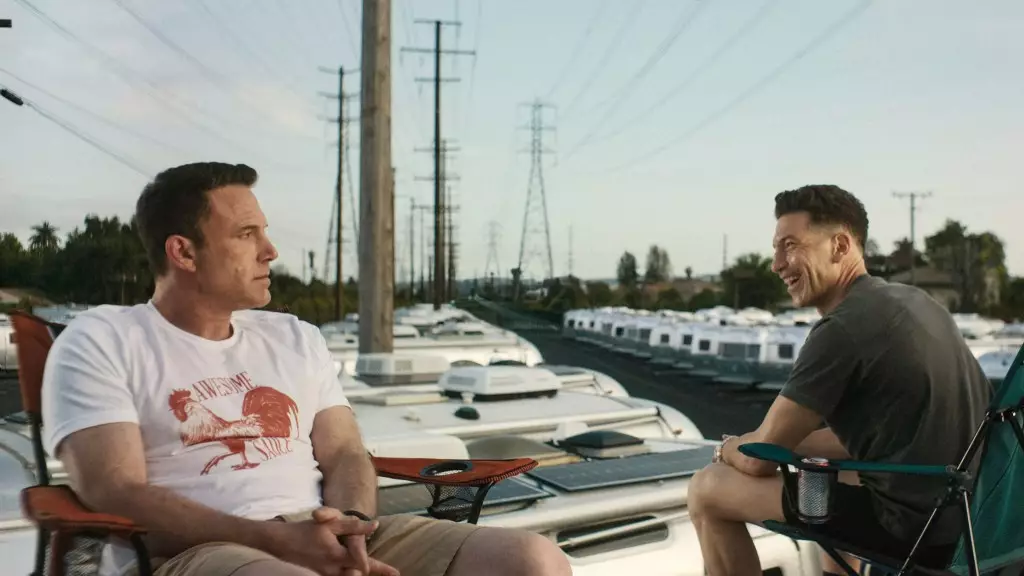The film industry stands at a crossroads when it comes to representation, particularly in how it portrays neurodivergent individuals. The upcoming sequel, *The Accountant 2*, directed by Gavin O’Connor, aims to champion the neurodivergent community by bringing back Ben Affleck as Christian Wolff, a character on the autism spectrum. However, there is an underlying tension in this portrayal that deserves rigorous scrutiny. While O’Connor seeks to promote awareness and understanding, the choice to cast a neurotypical actor like Affleck raises profound questions about authenticity, representation, and the film industry’s responsibility to accurately depict the diverse narratives within the neurodivergent community.
RFK Jr.’s Dangerous Rhetoric
Recent comments by Robert F. Kennedy Jr. have further ignited this debate. His assertion that autism is a “preventable disease” that leads to a cascade of negative outcomes for families is not only misleading but also stigmatizing. Gavin O’Connor rightfully critiques such ignorance, emphasizing that public figures must wield their words with care, especially when they concern communities that already face marginalization. It’s disturbing that someone who holds a position of influence could propagate such harmful stereotypes. Kennedy’s remarks could easily perpetuate the notion that neurodivergent individuals are inherently burdensome, undermining ongoing efforts towards inclusivity and understanding.
The Role of Experts and Real Voices
O’Connor claims to have immersed himself in research and consultations with experts to accurately illustrate the life of an autistic character. This commitment is commendable, but it can feel hollow when the actor embodying the role is not neurodivergent. One cannot help but wonder: is it truly enough to surround oneself with experts if the narrative voice remains that of a neurotypical actor? The pressure to represent a community authentically comes from more than just research; it also necessitates an authentic voice—a perspective that is often missed when neurotypical individuals tell neurodivergent stories.
In an era where the authenticity of storytelling is paramount, the film industry must begin to not just listen to but actively include those who identify within the narratives they seek to portray. The role of Justine, played by neurodivergent actress Allison Robertson, provides a glimmer of hope, yet it begs the question of why the lead role remains in neurotypical hands. This discrepancy highlights a critical gap in genuinely inclusive representation.
Audience Reception: A Divided Landscape
While Gavin O’Connor appears to have invested time in making *The Accountant 2* a nuanced representation, responses from audiences have been mixed. Some applaud the effort, while others critique Affleck’s portrayal as bordering on stereotypical caricature. A writer from *The Independent* pointedly questioned whether a neurotypical actor should portray a character on the spectrum. This skepticism underscores an important part of the conversation: nuanced representation requires more than just an actor’s commitment to research. It necessitates an understanding of lived experiences that only those within the community can convey.
The varying audience reactions signify a broader discontent regarding the practice of utilizing neurotypical actors in roles meant for neurodivergent individuals. In a climate where social justice and representation are being rigorously evaluated, films that perpetuate a lack of authenticity risk falling into the trap of tokenism—a practice that ultimately does more harm than good.
A Call for True Representation
The creation of narratives surrounding neurodivergent experiences must advocate for authenticity and empowerment rather than misunderstanding and exploitation. As cinema continues to serve as a powerful medium influencing public perception, it is imperative for filmmakers to consider the ramifications of their choices carefully. O’Connor’s intentions may be noble, but the reality remains that casting choices can define the narrative’s reception.
It becomes increasingly clear that the film industry’s approach to neurodivergent characters requires a paradigm shift. Moving forward, the hope should be to prioritize voices from within the community—those who have lived the experience and can thus bring authenticity to the screen. Only then can cinema serve as a powerful tool for both education and empowerment, fostering understanding and acceptance in a society that sorely needs it.

Leave a Reply